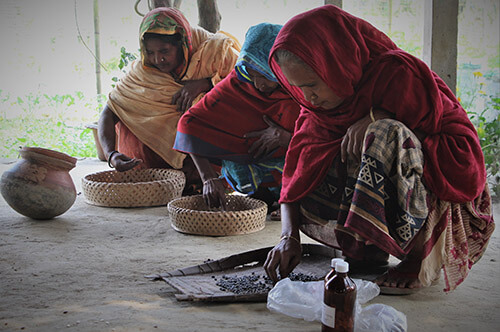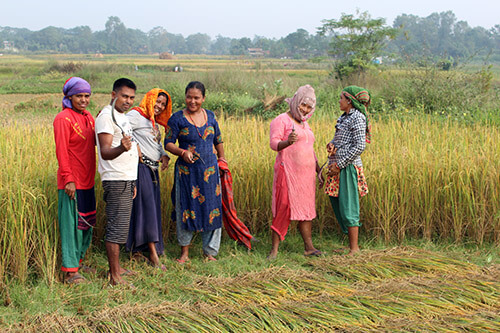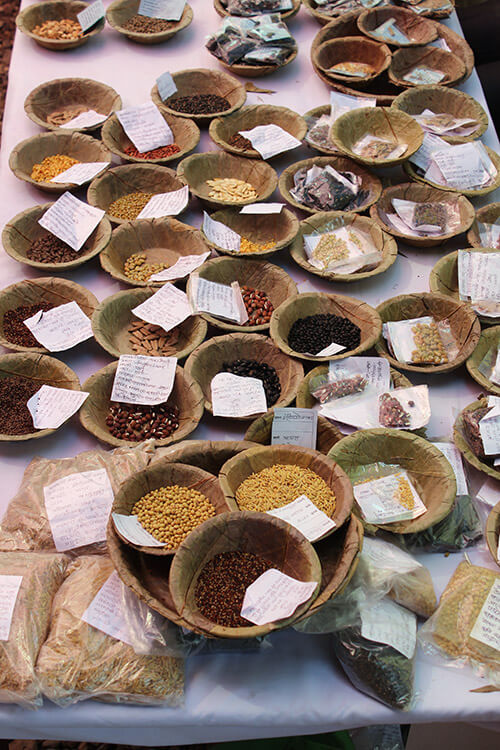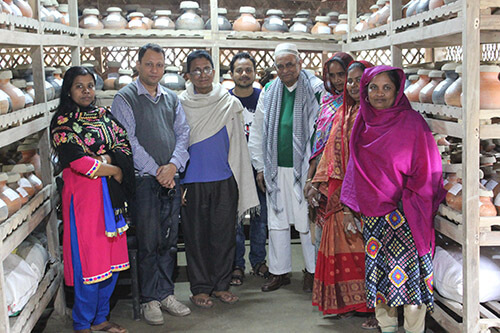LI-BIRD (Nepal) and UBINIG (Bangladesh)
Bioversity International (now the Alliance of Bioversity International and CIAT) was one of the first organizations to receive a grant from the Seeds, Soil & Culture Fund, in large part due to the tireless efforts of Ronnie Vernooy. I met Ronnie while both of us were participating in a Walking Workshop in southwest China that was organized by the International Network of Mountain Indigenous People (INMIP). Within his portfolio at Bioversity International, Ronnie has been working in Nepal with LI-BIRD (Local Initiatives for Biodiversity, Research and Development, http://www.libird.org/), an NGO that capitalizes on local initiatives to improve the livelihoods of rural poor and marginalized farmers, especially women, and in Bangladesh with UBINIG (Policy Research for Development Alternative, http://ubinig.org/), a community based and led research and advocacy organization linking life, ecology, and livelihood strategies for dignity, diversity and the joy of living.
UBINIG in Bangladesh and LI-BIRD in Nepal are building their capacity to manage community seed bank networks and organize seed knowledge exchanges and festivals. This work is strengthening the Nayakrishi Seed Network in Bangladesh and the National Community Seed Bank Association in Nepal so each would have a stronger voice in national dialogues about seeds and build linkages with civil society and government organizations. The work is contributing to the conservation of local crop varieties, better access by farmers to diverse and better adapted varieties, more exchanges of seed knowledge between farmers, improvement of traditional varieties, and more local control over seeds. Action research is addressing issues of heritage seed conservation, such as farmers’ incentives to conserve seeds on a community-wide basis; monitoring the impact of local seed conservation; and the roles of women and men custodian farmers. Applied trainings focus on the design of community-based heritage seed conservation models that smallholder women and men farmers anywhere can learn about and adapt to their own local context. LI-BIRD has designed a digital “seeds” portal for accessing information on heritage seeds and facilitate seed exchange.
In Bangladesh, smallholder farmers working with UBINIG on community seed banks celebrate farming in harmony with nature through seed-inspired food and crop festivals. Many communities with these seed banks belong to a national agroecological movement in Bangladesh that has pioneered and promotes traditional seed stewardship. Community Seed Wealth Centers (CSWC) are managed by farmers as nodes of the Nayakrishi Seed Network (NSN). The CSWC’s are linked with Seed Huts at the village level.
In Nepal, nearly all community seed banks with whom LI-BIRD works are made up of smallholder farmers practicing traditional farming. For these farmers, taking care of seeds and soil is key to a healthy Earth. LI-BIRD manages a biodiversity fund which supports community seed bank actions. Some districts have developed plans to include community seed banks in local, regional, or national public budgets. LI-BIRD also organizes national workshops on community seedbanks to facilitate wider sharing of experiences and knowledge throughout Nepal. LI-BIRD is leading a global trend among farmers and other stakeholders who view community seed banks as fundamental rural organizations.
Photo credit for LIBIRD and UBING photos: The Alliance of Bioversity International and CIAT/R. Vernooy
Return to the October 2021 Newsletter Index




